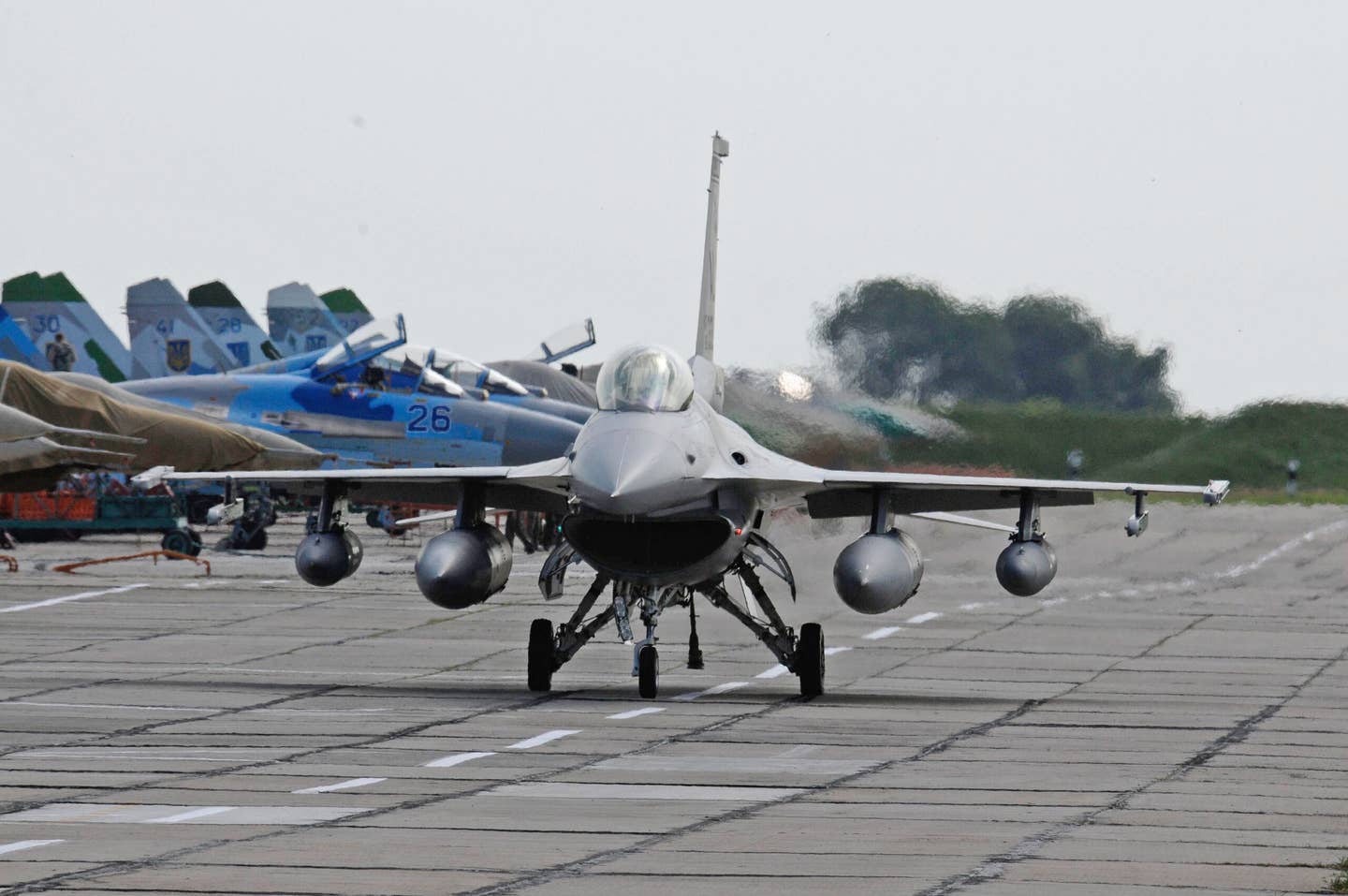Ukrainian President Volodymyr Zelenskyy thanked his Western partners on January 25 for pledging their battle tanks to Ukraine while at the same time asking them now to green-light the supply of fighter jets and long-range missiles.
“I am grateful to all our allies for their willingness to provide us with modern and much-needed tanks,” Zelensky said, as quoted on the government website.
After having secured the main battle tanks (MBTs) from the West, Ukraine has now set its sights on fighter jets.
“Today, I spoke with NATO Secretary General Jens Stoltenberg. We must unlock the supply of long-range missiles to Ukraine; we need to expand our cooperation in artillery. We have to achieve the supply of aircraft to Ukraine,” Zelensky said.
Yuriy Sak, the adviser to Ukrainian Defense Minister Oleksii Reznikov, is confident that the West would eventually consent to Ukraine’s request for fourth-generation fighter jets.
“If we get them (Western fighter jets), the advantages on the battlefield will be just immense… It’s not just F-16s (US multirole fighter jets): fourth generation aircraft, this is what we want,” Sak told Reuters.

“They didn’t want to give us heavy artillery, then they did. They didn’t want to give us HIMARS, then they did. They didn’t want to give us tanks; now they’re giving us tanks. Apart from nuclear weapons, there is nothing left that we will not get,” Sak continued.
Its quite remarkable that Sak would say something like that, as shortly after Zelensky requests fighter jets and long-range missiles, the leader of the French Eurosceptic political party The Patriots, Florian Philippot, said that all that is left for Zelensky to ask is “our nuclear arsenal.”
Philippot called the Ukrainian president a “madman,” saying, “Right now Zelensky’ demands fighter jets and long-range missiles from the West.’ And then what, our nuclear arsenal?! How much longer are we going to follow this madman? Until a nuclear world war?!”
Interestingly, Ukraine did possess the world’s third-largest nuclear arsenal for a brief period after the end of the Cold War.
During the Cold War, Ukraine was home to thousands of nuclear weapons stationed there by the Soviet Union. Naturally, Ukraine inherited those weapons when it became independent at the end of the Cold War.
At the time of the dissolution of the Soviet Union, Ukraine had an estimated 1,900 strategic nuclear warheads, 176 intercontinental ballistic missiles (ICBMs), and 44 strategic bombers, according to the Arms Control Association of the US.
However, in the early 1990s, Ukraine’s leadership decided to denuclearize the country in exchange for signed guarantees/assurances from the international community, ensuring its future security.
Certain Western media outlets suggest it was the US and the UK, together with Russia, that made Kyiv give up thousands of nuclear weapons it had inherited after the collapse of the Soviet Union in 1991, and if Ukraine still had its nuclear arsenal, the ongoing conflict in the country might have been avoided.
What Made Ukraine Give Up Nukes?
In 1991, then-US President George HW Bush and Soviet President Mikhail Gorbachev signed a bilateral treaty called the Strategic Arms Reduction Treaty (START), limiting the number of ICBMs and nuclear warheads the countries could possess.
However, the treaty had to go through a turbulent period following the disintegration of the Soviet Union, which challenged the legitimacy of START. In 1992, Ukraine, Kazakhstan, and Belarus signed a protocol in Lisbon, which made them ‘successor states’ of the Soviet Union.
The treaty required the successor states to join the Global Nuclear Non-Proliferation Treaty (NPT) soon.
In December 1994, the Ukrainian government became a signatory to the Nuclear Non-Proliferation Treaty (NPT), together with Belarus and Kazakhstan, who were also left with nuclear weapons after the collapse of the Soviet Union.
In exchange for Ukraine’s accession to the NPT as a non-nuclear weapons state, the US, the UK, and Russia provided Ukraine with security assurances as part of a memorandum called the ‘Budapest Memorandum.’
The text of that memorandum stated that “The Russian Federation, the United Kingdom of Great Britain and Northern Ireland, and the United States of America reaffirm their obligation to refrain from the threat or use of force against the territorial integrity or political independence of Ukraine, and that none of their weapons will ever be used against Ukraine except in self-defense or otherwise under the Charter of the United Nations.”
However, in March 2014, Russia annexed Crimea, a part of Ukraine, following the ‘Maidan’ revolution of February 2014 that overthrew the democratically elected Ukrainian government led by then-president Viktor Fedorovych Yanukovych, who had close ties with Russia.
The annexation of Crimea was criticized by governments worldwide, who considered it a direct violation of the 1994 Budapest Memorandum. However, Russia denied the charge and defended itself by questioning the legitimacy of the leadership in Kyiv.
Shortly after Russia invaded Ukraine in February 2022, Ukrainian leaders expressed regrets about giving up their nuclear arsenal, which they believe might have deterred Russia from the country.
“We gave away the capability for nothing,” Andriy Zahorodniuk, a former defense minister of Ukraine, told The New York Times on February 26, 2022.
However, the fact of the matter is that those nuclear weapons were not under the independent possession of Ukraine, as they were controlled by Russia, which had the launch codes.
Ukraine’s inability to circumvent Russian permissive action links (PALs) – meant to prevent unauthorized use of nuclear weapons – stood a barrier to Kyiv exercising full operational control over those nuclear weapons and thereby forced it to relinquish them.
- Contact the author at tanmaykadam700@gmail.com
- Follow EurAsian Times on Google News